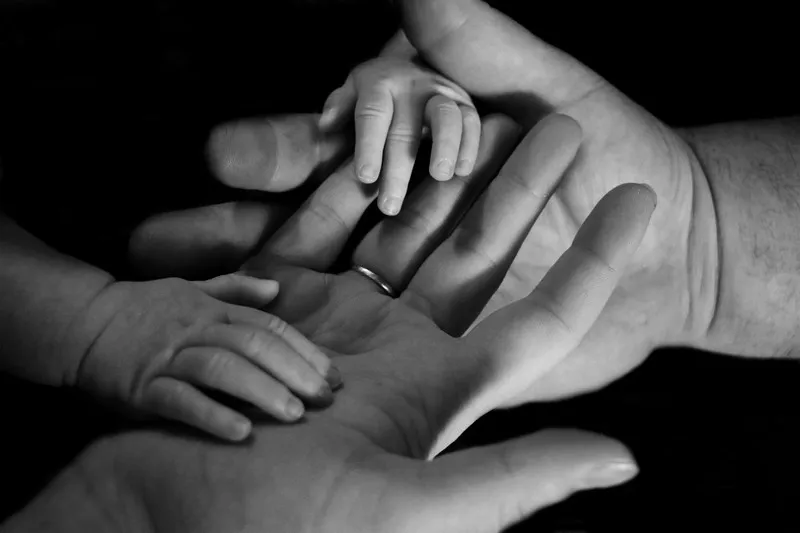Table of Contents
- Introduction to the Sensorimotor Stage
- Piaget’s Theory in Brief
- Characteristics of the Sensorimotor Stage
- Sociological Implications of the Sensorimotor Stage
- Intersections with Broader Sociological Theories
- The Sensorimotor Stage and the Digital Age
- Conclusion
Introduction to the Sensorimotor Stage
The sensorimotor stage, as conceptualized in the developmental theory of Jean Piaget, represents the first and most foundational stage of cognitive development. Spanning from birth to approximately two years of age, this period is characterized by the infant’s experiential learning through direct interaction with their environment using their senses and motor actions. While this framework originates in psychology, the implications for sociological analysis are profound. It is during this critical period that the rudiments of social life—communication, identity, and agency—are planted and nurtured.
This period of early development is marked not only by rapid cognitive changes but also by the social scaffolding that makes such development possible. The sensorimotor stage is where the human being first begins to interpret the social world. Infants engage in proto-conversations with caregivers, form attachments that serve as the foundation of emotional regulation, and begin to acquire the preliminary tools for symbolic thought. From a sociological perspective, the sensorimotor stage is the origin of culture, the birthplace of social interaction, and the moment when biological potential is shaped by social experience.
Though often examined within psychological and developmental paradigms, the sensorimotor stage holds significant implications for sociological inquiry, particularly in understanding the origins of human interaction, the emergence of self-awareness, the social construction of knowledge, and the scaffolding of cultural practices. The ways in which infants engage with caregivers, objects, and spaces offer an empirical entry point into the earliest manifestations of social embeddedness.
This article explores the sensorimotor stage through a sociological lens, elucidating how early cognitive processes lay the groundwork for later socialization, identity formation, symbolic interaction, and the internalization of social norms. Designed for undergraduate sociology students, this discussion integrates foundational developmental insights with sociological theory to foster a holistic understanding of early human development.
Piaget’s Theory in Brief
Jean Piaget proposed four major stages of cognitive development:
- Sensorimotor Stage (birth to 2 years)
- Preoperational Stage (2 to 7 years)
- Concrete Operational Stage (7 to 11 years)
- Formal Operational Stage (12 years and up)
Each stage reflects a qualitative shift in how a child understands and interacts with the world. Piaget emphasized that development is a progressive reorganization of mental processes resulting from biological maturation and environmental interaction. The stages are invariant and universal, suggesting a developmental blueprint embedded within human cognition that unfolds in relation to the social environment.
While Piaget’s theory has primarily influenced psychology and education, sociologists have increasingly recognized the relevance of these developmental transitions to theories of socialization, structure-agency relations, and the micro-foundations of social behavior. In particular, sociologists are interested in how cognitive development interacts with social structures to produce varied outcomes across cultural, socioeconomic, and familial contexts.
Characteristics of the Sensorimotor Stage
The sensorimotor stage is defined by the infant’s reliance on sensorimotor activity to explore the world. During this period, cognition is rooted in physical interaction, and intelligence develops through a sequence of substages that reflect increasing complexity and intentionality. Infants at this stage are constructing knowledge by doing—grasping, reaching, tasting, hearing, and seeing. It is through these seemingly simple acts that profound cognitive and social processes begin to take root.
Substages of the Sensorimotor Stage
- Reflexive Schemes (birth to 1 month):
- Newborns interact with the world through innate reflexes such as sucking, grasping, and orienting.
- These reflexes form the basis for future voluntary actions and represent the biological foundation upon which social interaction is scaffolded.
- Sociologically, even these primitive responses are embedded in social interactions, as caregivers respond and adapt to the infant’s actions, creating early patterns of interaction.
- Primary Circular Reactions (1 to 4 months):
- Infants begin to repeat pleasurable actions centered on their own bodies, such as thumb-sucking.
- These early habits create a sense of predictability and control, essential for the emergence of proto-agency.
- This repetition provides a sense of stability and continuity in the infant’s lived world, mirroring the repetitive and ritualistic aspects of cultural routines.
- Secondary Circular Reactions (4 to 8 months):
- Attention shifts to the external environment as infants repeat actions that produce interesting effects on surrounding objects.
- This marks the beginning of object manipulation and rudimentary understanding of causality, which is foundational for later interactions with social institutions and norms.
- Infants become increasingly aware of the social environment as they receive feedback from caregivers and others in response to their exploratory behaviors.
- Coordination of Secondary Circular Reactions (8 to 12 months):
- Goal-directed behavior emerges.
- Infants begin combining schemes to achieve desired outcomes (e.g., moving an obstacle to reach a toy), reflecting early problem-solving capabilities.
- This substage reveals the infant’s growing awareness of intentionality in action—both their own and that of others.
- It also marks the beginning of basic role-taking, as infants anticipate the reactions of others.
- Tertiary Circular Reactions (12 to 18 months):
- Experimentation and creativity increase significantly.
- Infants engage in deliberate trial-and-error problem-solving, manipulating objects in varied ways to observe outcomes.
- This behavioral experimentation parallels the sociological concept of improvisation within structured social contexts.
- Infants begin to show signs of understanding variation and adaptation, key elements in navigating diverse social situations.
- Mental Representation (18 to 24 months):
- The beginnings of symbolic thought appear.
- Infants can now form mental images of objects and anticipate outcomes without immediate sensory input.
- This capacity enables deferred imitation and the internalization of experience, both crucial for symbolic interaction and language acquisition.
- The ability to represent objects mentally is a foundational skill for the emergence of narrative, identity, and social memory.
Sociological Implications of the Sensorimotor Stage
Get the full article AD FREE. Join now for full access to all premium articles.
View Plans & Subscribe Already a member? Log in.





